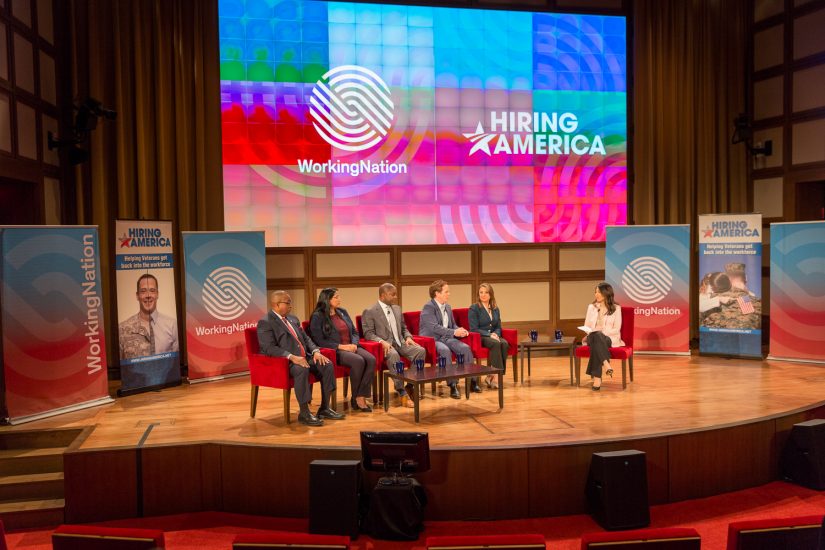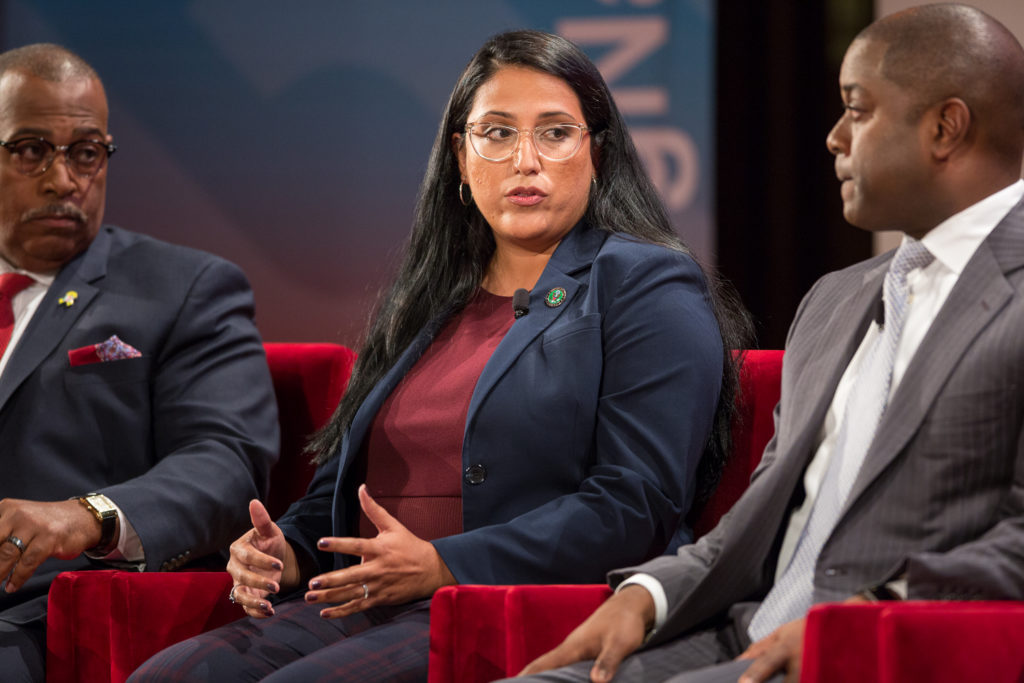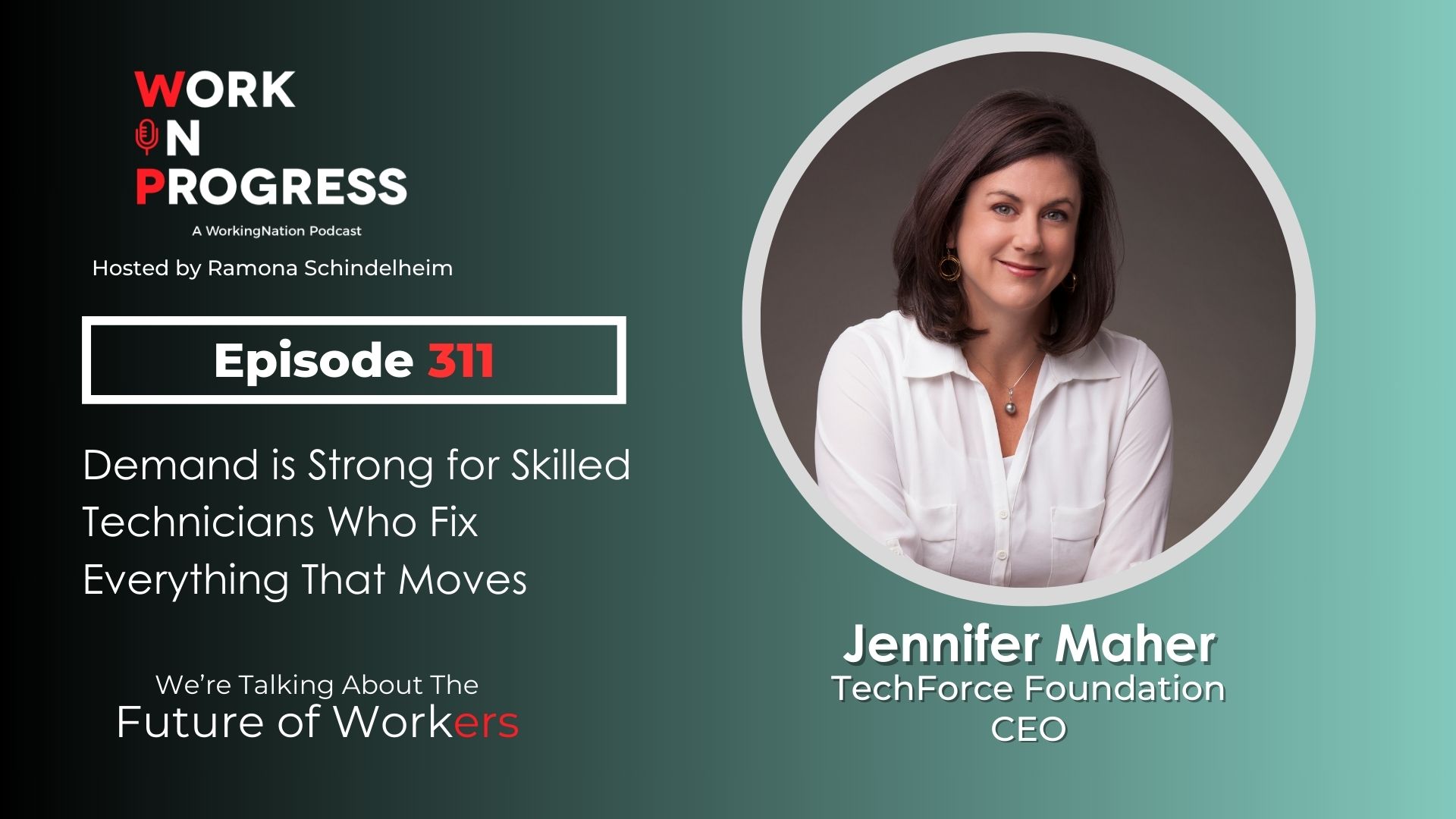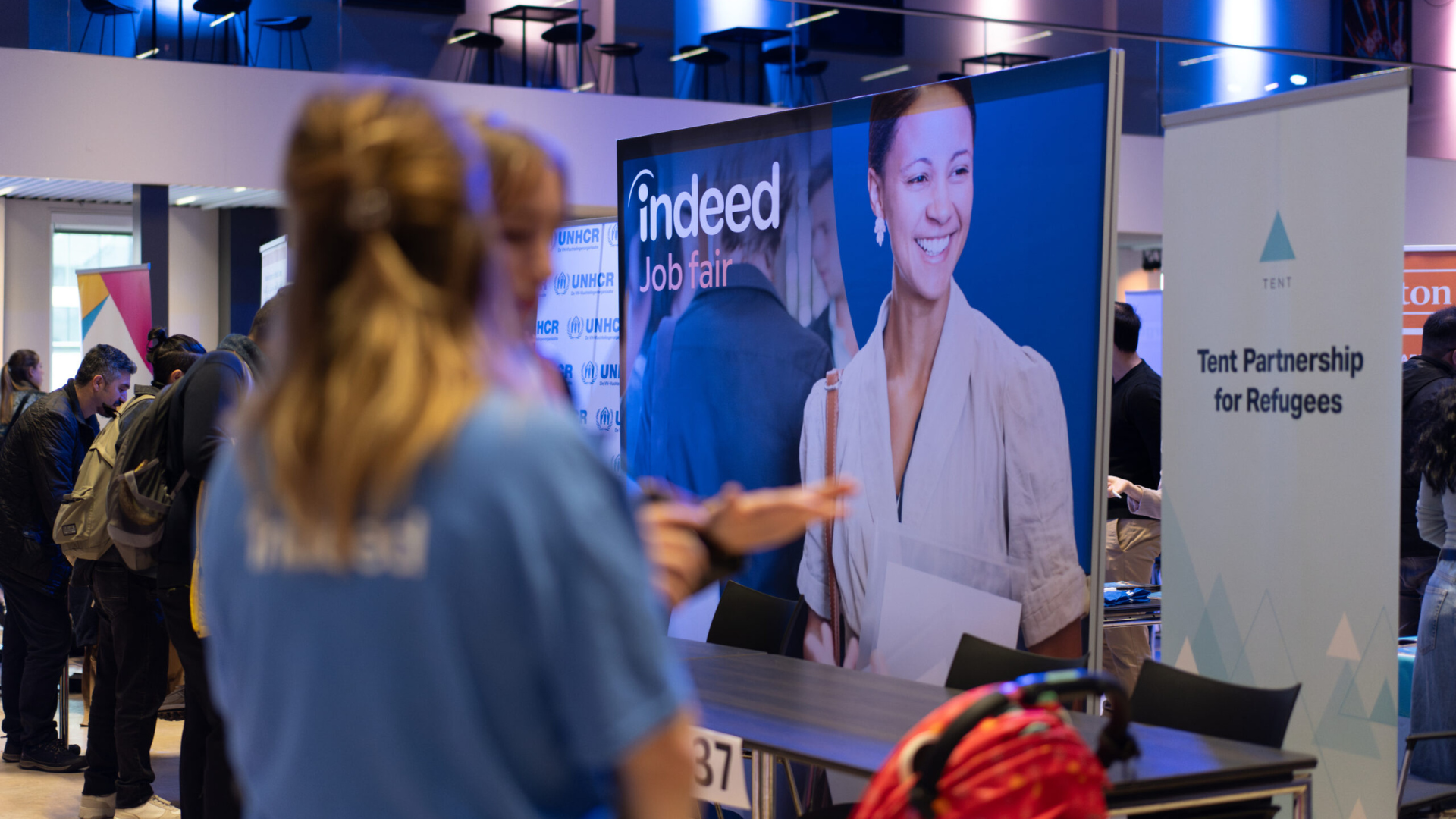Veterans of our proud military branches are unified by a strong work ethic and are a valuable resource as they enter into civilian life. But finding them meaningful and sustainable work can be difficult.
At the WorkingNation and Hiring America Town Hall, Keeping America’s Promise, hosted at the George W. Bush Institute in Dallas ahead of Veteran’s Day, business leaders, veteran outreach experts and a former U.S. Army General discussed with panel moderator Stephanie Sy the solutions helping them transition into their next chapter in life.
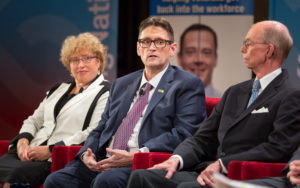
“Veterans want to get to work because they are accustomed to having a purpose,” said panelist and Persian Gulf War veteran Jeff Hall of the non-profit organization Disabled American Veterans.
For the nearly 250,000 veterans a year who are expected to make this transition, they run into problems like matching their skills with job descriptions, helping their spouses get jobs and making employers aware of their total value. But while there are resources available at the local and national level for veterans, it’s a matter of reaching out to veterans to raise awareness about them.
Hiring America, which is seen in more than 200 countries via the Armed Forces Network promotes the companies and programs making a difference and co-produced the Town Hall for a future broadcast over the AFN and syndication.
There were 453,000 unemployed veterans in a total population of 20.9 million as of 2016, according to the Bureau of Labor Statistics. Each year, around half of all veterans are unemployed for up to 18 months after discharge. And despite the unemployment rate for these workers edging downward in recent years due to the strong economy, there is still more work to be done.
The town hall’s featured panelist, former Army Chief of Staff General George Casey Jr. (Ret.) said that veterans can provide companies the values they are looking for, like their work ethic and leadership skills. He said that “we can do better as a country,” to get them working again.
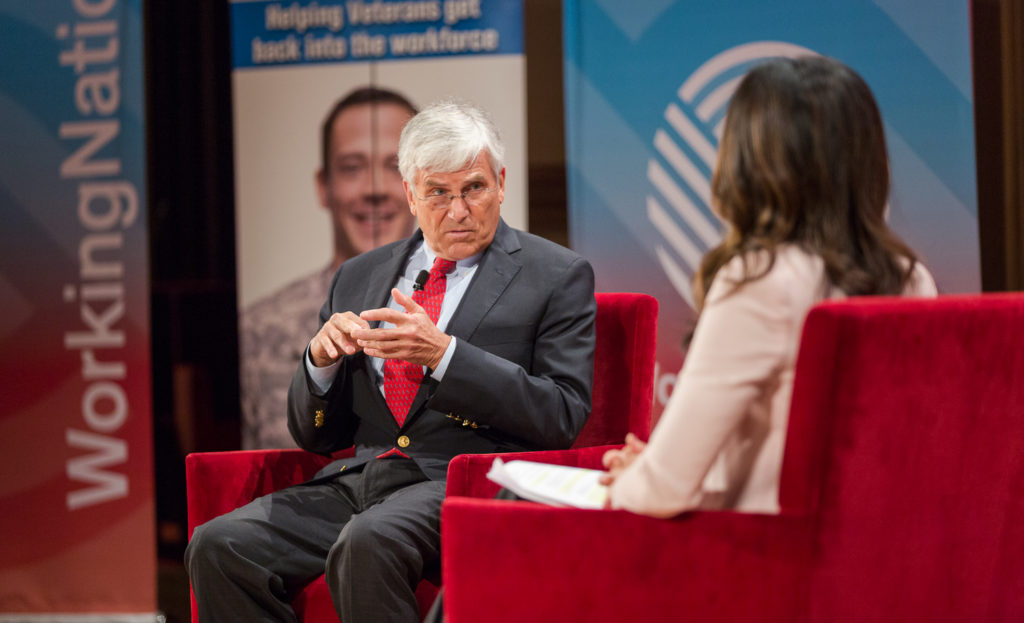
Casey highlighted the main pathway veterans have transitioned into new and well-paying careers, the GI Bill, which offers service members the chance to afford a four-year degree. “If you don’t have a degree, go to school take advantage of the GI Bill. One of the significant, but not well-known impacts of the GI Bill is that 62 percent of the men and women who have used it are first-generation college students,” Casey said.
The retired general also noted that reforms with the Transition Assistance Program (TAP), which offers career assistance to veterans for up to 12 months after discharge and the rise of corporate assistance have helped fill in the employment gaps.
Gen. Casey’s advice to veterans? Take advantage of the G.I. Bill and get a degree. #workingnation pic.twitter.com/CQE1IcFjOa
— WorkingNation (@WorkingNation) October 25, 2017
“A major impact came from the private sector, both from non-profits and major companies,” said Casey, “They play a huge role.”
DAV’s Hall said that his organization is committed to letting disabled veterans know about the different career options available to them through career fairs and an online guide. “Out of 50 career fairs we have sponsored, 30,000 have attended and almost half have been offered employment,” Hall said.
For some veterans, however, college is not a viable option for them to make the leap into a career that requires both hard and soft skills. “Not everyone wants to go to college, but as they get older, we can help them. That’s why the GI Bill is so important, so they know it doesn’t have an expiration date,” Hall said.
The growing gap in middle-skills jobs is one area where veterans can make a difference. Many of them have the skills necessary to enter blue-collar trades. Connecting these skills and building upon them is what organizations like the Home Builders Institute are doing to assist individuals before they reach the end of their service.
HBI President and CEO John Courson said that his company offers soon-to-be veterans the ability to learn trade skills in construction in an intensive training program located on military bases that gets results. Service members take on these new skills before they are discharged and are work-ready once they are.
“We are placing 100 percent of our soldiers into the construction industry,” Courson said.
Another company which has a proud tradition of hiring veterans, IBM, is working on many fronts to increase veteran hiring and deploying its information power to assist veterans in their job search. IBM Global Business Services Vice President and founder of the Public Service Academy Nicole Gardner said an app is being developed for vets to match their skills with employer demands.
She said that IBM understands how veterans are uniquely skilled at solving problems and her company is looking to add 2,000 more veteran hires.
IBM’s @NicoleWGardner says her company is “excited to hire veterans” and plans on hiring 2000 more. pic.twitter.com/biBCqwP73V
— workingnation (@workingnation) October 25, 2017
According to Jason Oliver, Vice President of Talent Acquisition for AT&T, veterans are the “fabric” of its workforce where 14,000 veterans are currently employed. As a founding member of the JP Morgan & Company’s Veterans Jobs Mission, he will be instrumental in helping AT&T source 20,000 more veteran hires by 2020.
Larry Hughes, a Vice President of Franchising Systems for 7-Eleven and a former Army officer, remarked how veterans are bringing their talents in franchising their stores. “The veterans that have joined our team are an extraordinary success. They have a process and a systems orientation that works in our business,” Hughes said.
Yet there is often a disconnect between employers and veterans as to how their skills translate into the civilian sphere. The spokesperson for the Iraq and Afghanistan Veterans of America and U.S. Army veteran Maria Terry shared her own story of how this disconnect hampered her job search.
“I experienced a roadblock trying to communicate to employers that I had the experience to do the job in HR,” said Terry, “But I took care of soldiers. It didn’t translate because I didn’t have experience in the industry.”
And, according to the Bush Presidential Center Military Service Initiative’s Jeff Cleland, there is a stigma of post-traumatic stress disorder attached by employers to veterans regardless of where they served and their length of service.
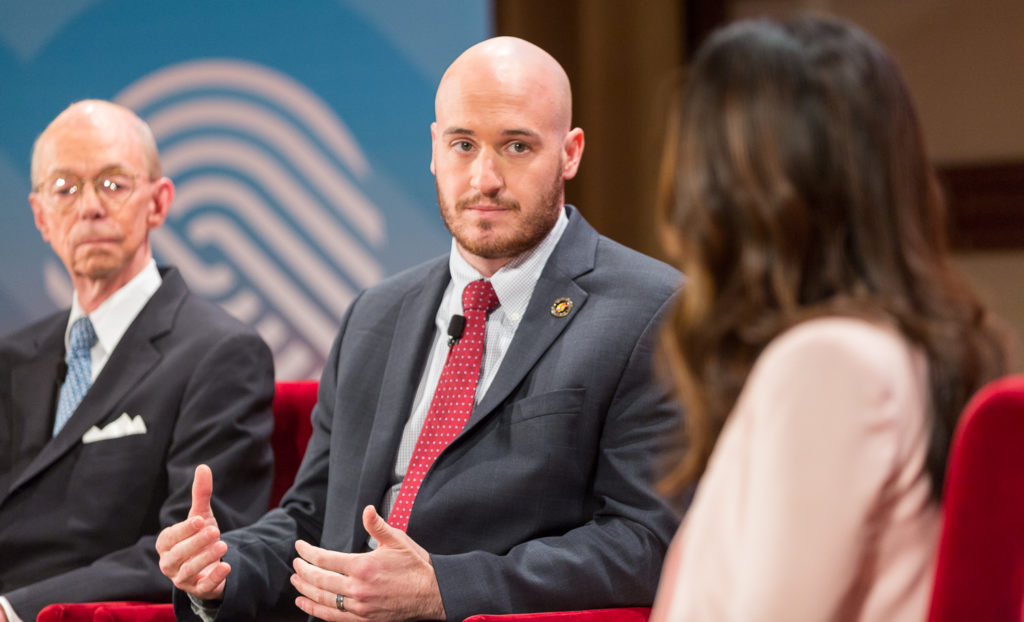
“By and large people think that PTSD is larger than it is and that every vet has an issue and this is not the case. PTSD can be managed through treatment. [The issue] has been blown out of proportion,” Cleland said.
Hall added that PTSD is an issue for some veterans, but employers can help veterans cope with these problems with counseling. “PTSD is not uncommon and not something employers should shy away from. [Veterans] have the inherent ability to work under extreme pressure,” Hall said.
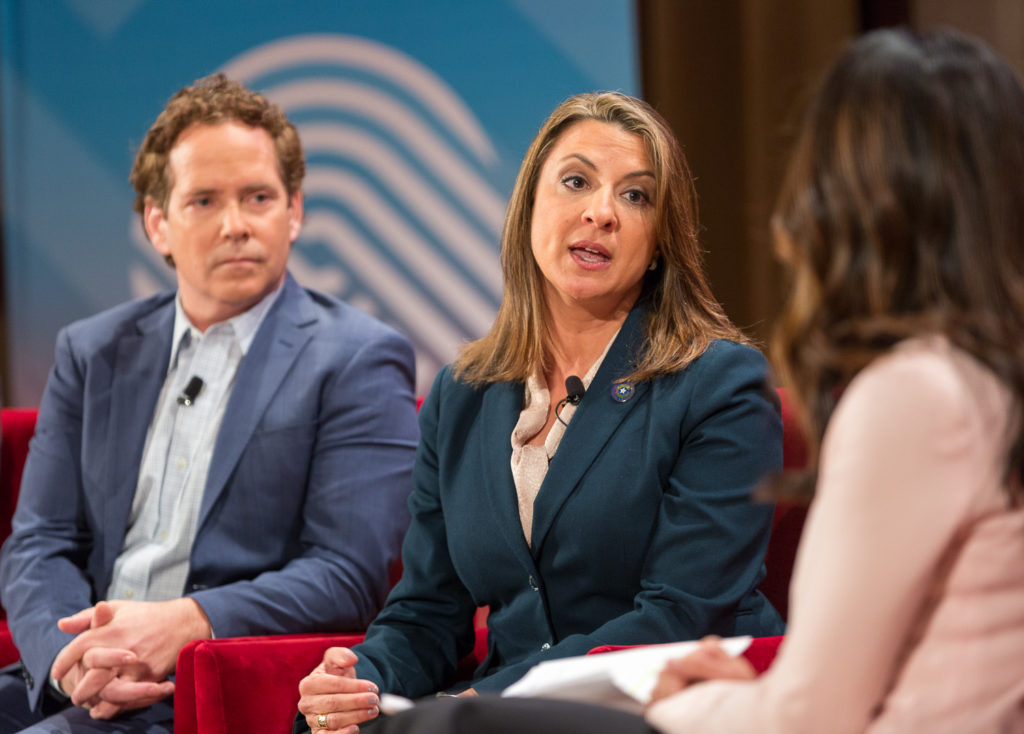
Breaking through these barriers is what the Society for Human Resource Management’s Andrew Morton is hoping his organization will do for employers to help them be more open to hiring veterans. He has applied his 21 years of Army service in guiding hiring managers into sourcing a veteran workforce.
“It’s an evolving process. I think it’s been a maturation and appreciation of [veterans’] soft skills and leadership skill,” Morton said. “The biggest challenge we face as employers is going from ‘veteran-friendly’ to ‘veteran-ready’.”
Gen. Casey said that he is also committed to fighting the stigma of combat stress in the workplace and increasing jobs outreach to encompass the veteran’s spouse, who also needs help in transitioning to life off the military base.
“This transition needs to be approached holistically. It’s not just about the job and veteran, but for his and her spouse,” Casey said.
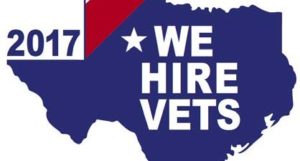
According to Ruth Hughs of the Texas Workforce Commission, 54,000 veteran spouses in the Dallas-Fort Worth area are looking for employment. The TWC is helping them find work as well as integrating recently-discharged service members into the civilian workforce with its Operation Welcome Home initiative. Texas companies which have a workforce that is comprised of 10 percent former military members are recognized by the state through its We Hire Vets program.
“If you served in our military, we want to make sure you have a job that gives you pride in your civilian life,” Hughs said.
Veterans should take pride in their service and the experiences and skills they picked up along the way. Gen. Casey said that neither veterans nor employers should ignore what vets can add to a workplace and both should embrace what companies and government can do to help.
“Veterans, don’t sell yourselves short. You already have the skills business leaders are looking for. Don’t be afraid to ask for help,” Casey said. “That may seem odd but service members are trained to be members of the team. You don’t ask for something for yourself, it’s all about the team. Change that.”
Join the Conversation: Tell us your ideas for how businesses and non-profit organizations can help veterans and their families transition into civilian life on our Facebook page.

